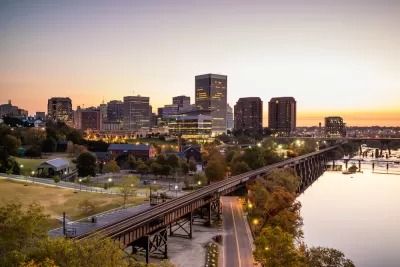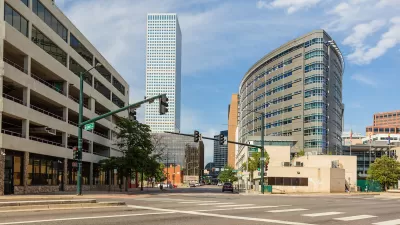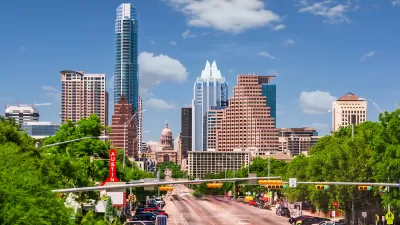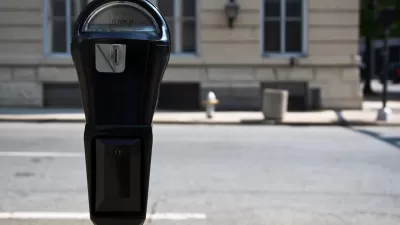Even as cities and states are reducing or eliminating parking requirements, lenders often require parking to release loans to developers.

Ned Oliver, in an article in Axios, cautions that, although the city of Richmond, Virginia is encouraging more density and walkability by reducing parking requirements, developers face another challenge to reducing parking: banks.
Per city rules, “Developers are no longer required to offer any dedicated parking if their building contains fewer than 17 units. For larger developments, they only have to provide one space for every two units.” But according to Oliver, “In exchange for agreeing to finance an apartment project, banks almost always require developers to build a minimum number of parking spaces — often well above the requirements set by the city, developers say.”
The problem affects affordable housing developments more than market rate ones where more residents own cars, but Tom Papa of Fountain Head Properties expressed concern that “parking minimums that make sense today will prove to be a financial albatross for developments 10 years down the road as Richmond changes.”
More on Planetizen:
FULL STORY: Secret parking minimums are driving up development costs

Study: Maui’s Plan to Convert Vacation Rentals to Long-Term Housing Could Cause Nearly $1 Billion Economic Loss
The plan would reduce visitor accommodation by 25,% resulting in 1,900 jobs lost.

North Texas Transit Leaders Tout Benefits of TOD for Growing Region
At a summit focused on transit-oriented development, policymakers discussed how North Texas’ expanded light rail system can serve as a tool for economic growth.

Using Old Oil and Gas Wells for Green Energy Storage
Penn State researchers have found that repurposing abandoned oil and gas wells for geothermal-assisted compressed-air energy storage can boost efficiency, reduce environmental risks, and support clean energy and job transitions.

Private Donations Propel Early Restoration of Palisades Playground
Los Angeles has secured over $1.3 million in private funding to restore the Pacific Palisades playground months ahead of schedule, creating a modern, accessible space that supports community healing after recent wildfires.

From Blight to Benefit: Early Results From California’s Equitable Cleanup Program
The Equitable Community Revitalization Grant (ECRG) program is reshaping brownfield redevelopment by prioritizing projects in low-income and environmental justice communities, emphasizing equity, transparency, and community benefits.

Planting Relief: Tackling Las Vegas Heat One Tree at a Time
Nevada Plants, a Las Vegas-based nonprofit, is combating the city’s extreme urban heat by giving away trees to residents in underserved neighborhoods, promoting shade, sustainability, and community health.
Urban Design for Planners 1: Software Tools
This six-course series explores essential urban design concepts using open source software and equips planners with the tools they need to participate fully in the urban design process.
Planning for Universal Design
Learn the tools for implementing Universal Design in planning regulations.
Ascent Environmental
Borough of Carlisle
Institute for Housing and Urban Development Studies (IHS)
City of Grandview
Harvard GSD Executive Education
Toledo-Lucas County Plan Commissions
Salt Lake City
NYU Wagner Graduate School of Public Service





























